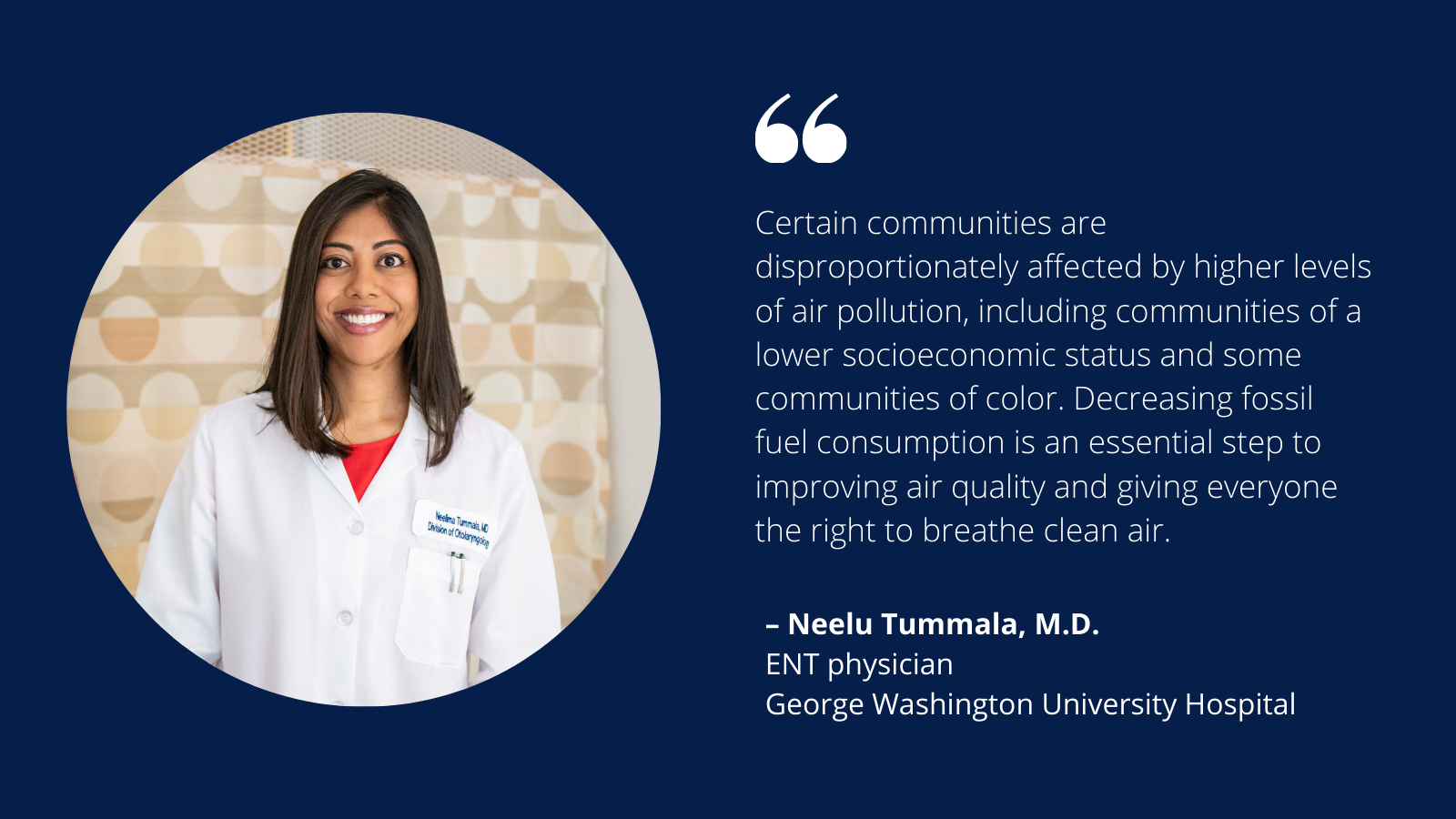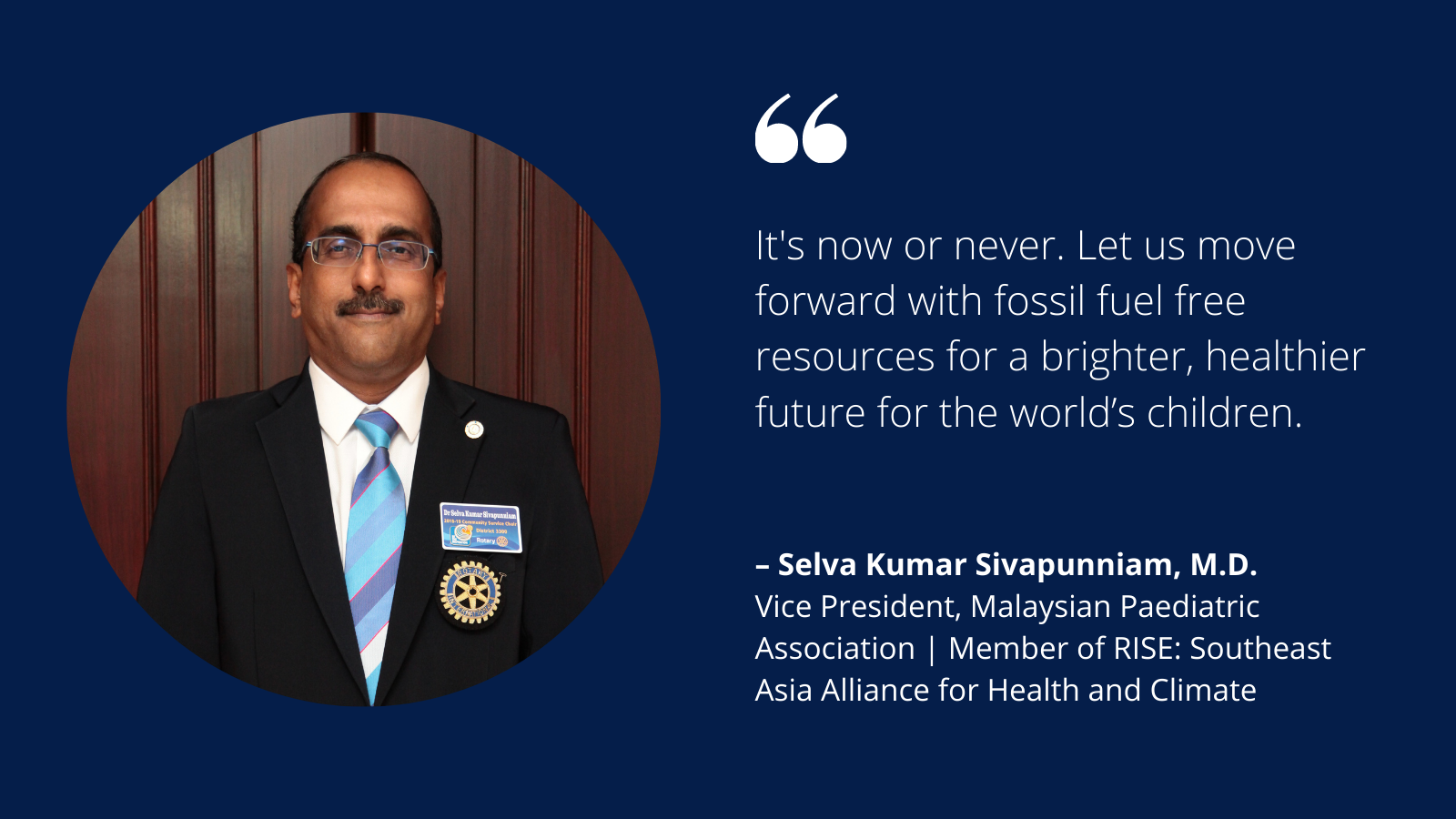New evidence points to the urgency of phasing out fossil fuels for a healthier future
A new study from scientists at Harvard and University College London (UCL) shows that air pollution from fossil fuels caused one in five deaths globally. The transition to clean, renewable energy presents an enormous opportunity for global public health.
Phasing out fossil fuels is one of the major challenges the world has to face during the 21st century, as they are the main driver of global climate change and a serious public health issue.
A study published today in Environmental Research demonstrated that more than 8 million people died prematurely in 2018 due to air pollution caused by fossil fuel combustion.
Tackling fossil fuel use is our greatest public health challenge, by Gary Cohen, president and co-founder of Health Care Without Harm, and Dr. Arvind Kumar, founder and managing trustee at Lung Care Foundation.
Small inhalable particles – PM2.5 – are the byproducts of the burning of fossil fuels, such as coal and diesel. When released into the atmosphere, and given their small size, they can be inhaled and have detrimental impacts on health, including lower respiratory infections, asthma, heart disease, lung cancer, neurological damage, and birth defects.
The most affected groups are children, older adults, patients with preexisting conditions, low-income communities of color, and other marginalized communities.

Switching to readily available sources of clean, renewable energy can save millions of lives, enhance health and well-being, and slow down the progress of climate change. For example, the state of Chhattisgarh in India promoted the solarization of rural clinics, which led to a more sustainable and reliable power supply, improved health outcomes, and reduced emissions.
Other major initiatives are underway. In 2020, England’s National Health Service (NHS) became the first health system in the world to make a commitment to achieving net-zero emissions.

In partnership with the Skoll Foundation and film company Freethink, Health Care Without Harm released in 2020 ‘First, do no harm,’ a short film featuring physicians and health advocates working with communities around the world to address the impact of fossil fuel combustion on human health.
Read more: 1 in 5 deaths linked to fossil fuel pollution Harvard study findings should spur rapid action
The latest evidence from Harvard/UCL provides even stronger motivation for Health Care Without Harm, and the health professionals and health organizations we work with, to accelerate the global health sector movement for climate action.
Learn about the following initiatives by Health Care Without Harm, and join us:
- Health Care Climate Challenge: This initiative by Health Care Without Harm brings together health care systems and organizations committed to the reduction of their emissions. In 2020, the Challenge became the official health care partner of the United Nations Framework Convention on Climate Change (UNFCCC) Race to Zero campaign.
- Healthy Energy Initiative: The Healthy Energy Initiative is a global collaboration of health professionals, health organizations, and health researchers engaging in science-based advocacy for a move away from fossil fuel-based power generation – particularly coal – and toward clean, renewable, healthy energy options.
- Doctors For Clean Air: A joint initiative with Lung Care Foundation that brings together doctors from all over India that work with their communities to raise awareness on the effects of air pollution and work towards viable solutions.
- Doctors for Greener Healthcare: A network that brings together doctors from across Europe to collaborate, share best practice, and advocate for a healthy future by reducing the environmental impact of healthcare.
- RISE Southeast Asia Alliance: This initiative by Health Care Without Harm Southeast Asia is a leadership and advocacy platform aiming to support health care leaders in advancing climate action and a healthy recovery in the region. The network is a response to the need for a regional multi-sectoral movement, led by health care practitioners, to ensure a safe, healthy, and equitable recovery and rebuilding beyond the COVID-19 pandemic.
- The Nurses Climate Challenge is a global initiative that aims to mobilize nurses to educate health professionals about the health impacts of climate change. Created in partnership with Health Care Without Harm and the Alliance of Nurses for Healthy Environments, along with collaboration from the Canadian Association of Nurses for the Environment, the challenge offers an established and comprehensive list of resources tailored to U.S. and Canadian health care environments to empower nurses to educate their colleagues and community. Its European counterpart, the Nurses Climate Challenge Europe is building a comprehensive bank of resources that is tailored to the European health care sector, and will be available in multiple languages.
- In the United States, Health Care Without Harm's Physician Network supports emerging and established physician leaders in leveraging their influence and expertise to advance the growing health care sustainability movement and to advocate for climate-smart health care.
Learn how you can participate
